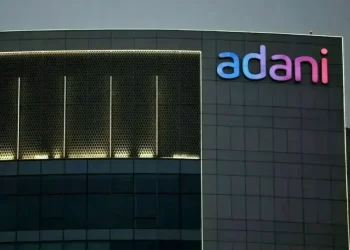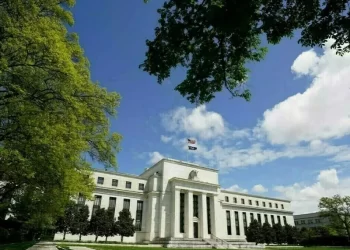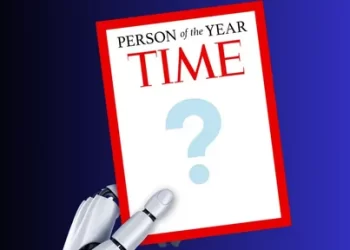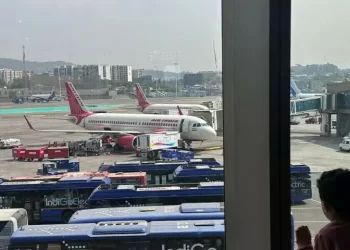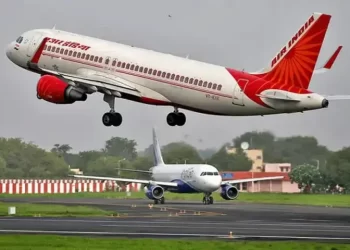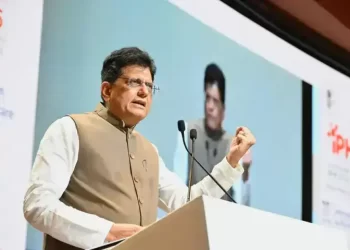Russian President Vladimir Putin and Chinese President Xi Jinping will be meeting for the second time in as many months as they visit Kazakhstan for a session of an international group founded to counter Western alliances.
Putin and Xi last got together in May when the Kremlin leader visited Beijing to underscore their close partnership that opposes the U.S.-led democratic order and seeks to promote a more “multipolar” world.
Now they’ll be holding meetings amid the annual session of the Shanghai Cooperation Organization on Wednesday and Thursday in the Kazakh capital of Astana. A look at the summit:
The Shanghai Cooperation Organization was established in 2001 by China and Russia to discuss security concerns in Central Asia and the wider region, Other members are Iran, India, Pakistan, Kazakhstan, Kyrgyzstan, Tajikistan and Uzbekistan. Observer states and dialogue partners include Turkey, Saudi Arabia and Egypt.
Besides Putin and Xi, and summit host President Kassym-Jomart Tokayev, other leaders there will be Prime Minister Shehbaz Sharif of Pakistan, President Shavkat Mirziyoyev of Uzbekistan, President Emomali Rakhmon of Tajikistan, and President Sadyr Zhaparov of Kyrgyzstan. President Alexander Lukashenko of Belarus will attend because his nation is becoming a full member.
Iran is still choosing a successor to President Ebrahim Raisi, killed in a helicopter crash in May, with a runoff election Friday, so acting President Mohammad Mokhbar will attend.
Other guests of the SCO include President Recep Tayyip Erdogan of Turkey and President Ilham Aliyev of Azerbaijan.
Also present will be U.N. Secretary-General António Guterres, who is visiting Central Asia. Guterres wants “to position the U.N. as an inclusive organization that’s talking to all the big clubs,” said Alexander Gabuev, director of the Carnegie Russia Eurasia Center.
Prime Minister Narendra Modi of India is sending his foreign minister. Indian media reports speculated the recently reelected Modi was busy with the parliament session that began last week. He attended the recent Group of Seven summit in Italy, and some reports also speculated he wants to balance India’s relationship with Russia and the West.
Putin wants to show that Russia is not isolated over Western sanctions from the invasion of Ukraine in 2022.
An arrest warrant has been issued for him by the International Criminal Court for war crimes, accusing him of personal responsibility for abductions of children from Ukraine. Kazakhstan is not party to the Rome Statute and thus is not obliged to arrest him.
For Putin, the meeting is about “prestige and the symbolic optics that he’s not alone,” Gabuev said.
The meeting is another chance for Putin and Xi to demonstrate the strong personal ties in their “strategic partnership” as they both face soaring tensions with the West. They have met more than 40 times.
Putin’s meeting with Xi in May showed how China has offered diplomatic support to Moscow and is a top market for its oil and gas. Russia has relied on Beijing as a main source of high-tech imports to keep its military machine running.
The SCO helps China project its influence, especially across Central Asia and the Global South. Xi called for “bridges of communication” between countries last week and wants to further promote China as an alternative to the U.S. and its allies.
Erdogan could use the meeting to hold talks with Putin, who has postponed several visits to Turkey. The leader of the NATO member has balanced relations with both Russia and Ukraine since the war began, frequently offering to serve as a mediator.
For host Kazakhstan and the other Central Asian nations, the meeting is a way to further their cooperation with bigger, more powerful neighbors. Kazakhstan, for instance, frequently engages with both neighboring Russia and China, while also pursuing links with the West, with visits this year from U.S. Secretary of State Anthony Blinken and British Foreign Secretary David Cameron.
Countering terrorism is a key focus. Russia had what it has called two terrorist attacks this year, with more 145 people killed by gunmen at a Moscow concert hall in March, and at least 21 people were killed in attacks on police and houses of worship in the southern republic of Dagestan in June. In the March violence, the U.S. warned Russian officials about the possibility of an attack — information that was dismissed by Moscow.
The SCO is not a collective security or economic alliance, and there are “significant security differences between its members,” said Nigel Gould-Davies, a senior fellow for Russia and Eurasia with the International Institute for Strategic Studies in London and a former British ambassador to Belarus. The “principal value” of the organization lies in the optics of non-Western countries gathering together, he added.
Gabuev agreed, saying the SCO is a place for conversation rather than a platform where “collective decisions are made, implemented and have an impact.”



